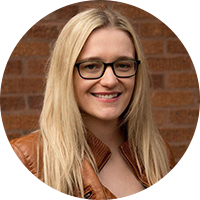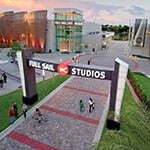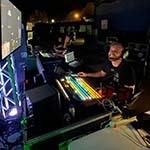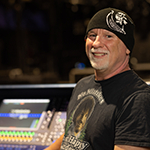Full Sail Stories
Published May 27, 2022
Faculty Spotlight: Dave Harris (Course Director, Show Production)
Dave Harris draws on years of broadcast experience to show his students the real-world applications of audio networks.
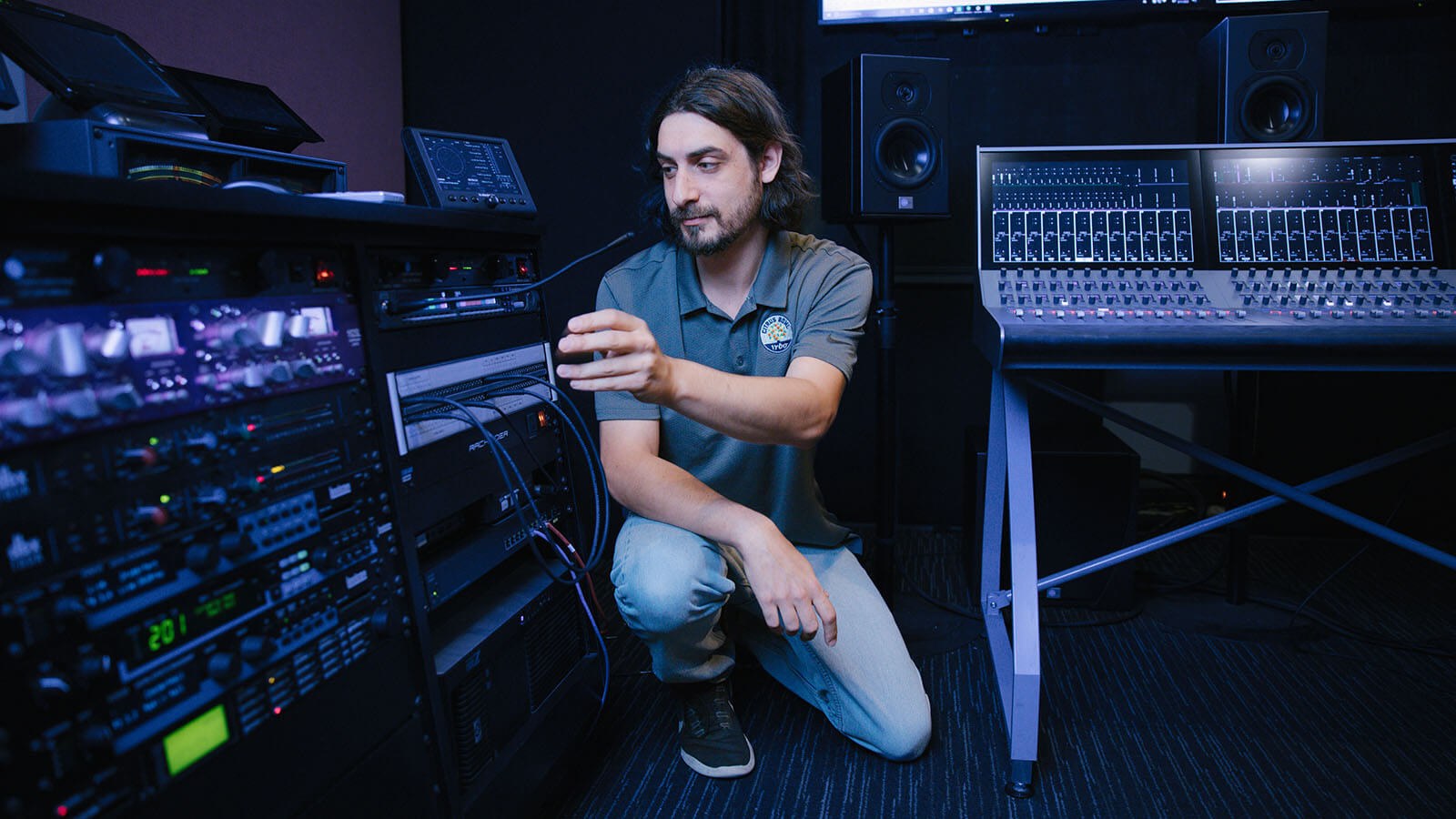
What did Disney’s 50th Anniversary Celebration, the Red Sox 2019 World Series ring ceremony, and the 2022 Cheer and Dance Competition at ESPN’s Wide World of Sports all have in common? Aside from being huge, televised events, they also had an experienced audio professional working behind the scenes: Full Sail Show Production course director Dave Harris. The lifelong audiophile has been working at concerts and major broadcast productions for years, and he’s drawing on that experience to teach his students about the latest equipment and network-based audio systems.
Dave started playing piano at a young age and discovered audio production in high school where he worked on sound for his school’s theater productions. He started doing freelance audio work right after he graduated and continued playing the keyboard throughout his adulthood; he plays in several Grateful Dead tribute bands, and he used to tour with one of the Grateful Dead’s original keyboardists. Dave also owns Dave Harris Custom Restorations, where he repairs, restores, and tunes instruments and audio equipment. He’s worked as a freelance audio engineer for almost 18 years and added broadcast sports audio to his repertoire about six years ago when he started working with the University of Central Florida Athletics Association.
Since he joined Full Sail’s faculty in 2013, Dave has taught as a lab instructor for Audio Measurement Systems and developed curriculum for Advanced Show Production Systems and Sports Broadcast Production. His current focus is Show Production System, a class that covers the inner workings of audio gear and the technical concepts students need to hit the ground running after graduation.
The audio production work Dave does outside of Full Sail dovetails into what he teaches in his classes. He helps set up, run, and troubleshoot audio networks for live events and broadcast productions, including concerts and sporting events. Some of the broadcasts and events he’s worked on include MLB Spring Training, AEW Wrestling, Orlando City Soccer, and the NFL Pro Bowl. The digital networks and equipment that he uses when he’s working are identical to what his students use in Show Production Systems.
For example, Dave teaches his students how to use Dante, a system that transmits multiple audio channels to a destination via an ethernet network. Full Sail uses Dante in its Live 1 venue, as well as several other venues on campus. In the industry, Dante is used for everything from concerts to football games to massive corporate events.
“I show a lot of pictures [from my Red Sox gigs] during my lectures because we were using the exact same Yamaha consoles we teach in that class. We were using Dante, which we teach in that class. Those particular gigs are something where it's a sporting event, but we're working with a musical act, and it's really held by a corporate company. It marries all of the aspects of sports, music and corporate together. That's a lot of what I teach in my class, the different avenues,” Dave explains.
When he’s working a freelance job, Dave also relies on the same audio communication concepts and IT basics that he shares with his students. His experience at Disney’s 50th Anniversary Celebration is just one example of how those skills come into play in a professional setting.
“We had a video camera and some audio feeds [at Disney’s 50th], an earpiece for the reporter, and we needed to send all that through a telephone line, out to the news station so it could get live on air. So that's directly one of the things we teach in some of our comms labs,” Dave says.
Dave loves bringing those concepts to his one-on-one connections with students. Demonstrating the practical applications of his curriculum and watching them succeed after graduation is one of the most rewarding parts of his work at Full Sail.
“I try to just show the students, and I really tell them, ‘This is what you're actually going to be using every day,’ versus, ‘This is some of the academia. You're getting your bachelor's in audio. So, you have to learn [some theories], but here's the stuff you have to know, and you're going to be using it daily,’” he says. “I really try to differentiate that because a lot of students will see math, in particular, and they'll just be like, ‘Why are we learning this?’ Or, ‘Where do I actually apply it?’ A lot of this stuff, I use some of it every single day.”
